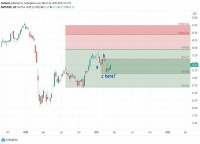|
Opalesque Industry Update - Alix Capital, the Geneva-based investment boutique specialising in regulated alternatives investments, is publishing a paper which reveals that ESMA proposals limiting the use of indices by UCITS funds will require a change in investment approach for EUR 3 billion of CTA UCITS assets. The paper discusses the impact of the regulation and examines the options available to CTA managers to ensure compliance with the ESMA proposals. Current UCITS regulations do not allow direct investment in commodities therefore many CTA managers use indices to gain commodity exposure. The ESMA consultation, entitled “Guidelines on ETFs and other UCITS issues: Consultation on recallability of repo and reverse repo arrangements”, published in July 2012, proposes new guidelines governing UCITS eligible indices that directly impact UCITS CTAs/managed Futures funds. ESMA recommends that an index should be transparent and replicable to be UCITS-compliant, and that rebalancing more frequently than weekly will no longer be acceptable. This poses major problems for CTA managers using proprietary indices as the methodology is their intellectual property, and disclosure of its constituents could enable competitors to replicate their strategy. UCITS CTA funds utilising indices for commodity exposure account for around 50% of all the assets managed in the strategy and of the 10 largest UCITS CTA managers, seven use the index structure. The majority of CTA funds using an index structure will have to rethink the way they implement their strategy if the ESMA recommendations are ratified across Europe in their current form. Alix Capital’s UCITS Alternative Index Quarterly report for Q3 2012 revealed that the number of CTA UCITS funds has grown from nine to 55 from January 2008 to September 2012, and that assets under management for the strategy surged from EUR 1.57billion to EUR 6.09billion over the same period. Louis Zanolin, CEO of Alix Capital, says: “The ESMA recommendations will have a major impact on the alternative UCITS sector. Asset managers will need to make significant changes to ensure compliance, which is key if the sector is to continue its recent growth trend. CTA managers will not be able to cope with these new regulations in their current form, however there are options available. “We expect a large portion of UCITS CTA managers with commodities exposure will choose to replace indices with certificates, a type of debt instrument, as this will allow them to maintain the desired commodity exposure while avoiding the upcoming index constraints. Only time will tell how exactly the regulations will affect CTA managers in practical terms, as each country is still in the process of implementing the ESMA recommendations into their national law. Commodities are an important asset class for investors seeking to build a diversified portfolio and for ESMA regulations to force managers to use complex methods to gain exposure to this asset class makes little sense. In our view it would be more beneficial to consider allowing UCITS funds to invest directly into commodity instruments. ” Below is a summary of the options for CTA managers, which are explained in full in the Alix Capital paper: Maintain commodity exposure utilising different instruments Structured financial instruments, such as certificates, are an alternative to indices for CTA funds to gain exposure to commodities. Certificates are debt instruments, categorised as transferable securities and used to either replicate performance of commodities exposure, or of an entire portfolio. They are bound to the same restriction as any other investment in a UCITS funds and cannot represent more than 10% of the fund allocation. The composition of the certificate is however not governed by the UCITS rules and it can therefore invest in non-eligible assets such as commodity derivatives. Certificates also have to meet specific constraints in terms of independent valuation and liquidity and also require approval by the regulator on a case by case basis. Certificates are not ideal solutions as they introduce an additional layer of costs and introduce additional counterparties and therefore risks. Abandon commodity exposure Some CTA managers with little exposure to commodities may choose to abandon exposure to the asset class altogether. Some are already working on models excluding commodities and will therefore adapt to the constraints relatively easily. However, for most managers this is unrealistic given the level of allocation to commodities for the purposes of diversification and decorrelation. For those who do abandon the commodity exposure it could take some time to convince investors that they can effectively run their strategy without exposure to this asset class. Maintain the index approach: If managers choose to continue using an index to gain commodity exposure they will have to fully disclose both their methodology and positions, and limit the rebalancing frequency to weekly. The issue of transparency will prove difficult for CTA managers, who naturally wish to maintain their competitive edge. As individual countries decide how to interpret and implement the ESMA regulations they may consider accepting a general strategy description, which enables managers to keep specific elements of their strategy confidential. They may also consider allowing managers to disclose the index methodology with sufficient delay to prevent others replicating their strategy. (press release) Alix Capital is a Geneva-based investment company specialising in alternative investments. Founded by a team of experienced alternative investment specialists, Alix Capital provides research and advisory services to the institutional investor community in the field of absolute return investing. The Company is responsible for the calculation, licensing, branding and marketing of the UCITS Alternative Indices. www.ucits-alternative.com. If you would like to receive a full copy of the CTA paper please contact Broadgate Mainland: Sally Moore/ Chiara Barreca, Tel +44.(0)207.726.61.11, smoore@broadgatemainland.com / cbarreca@broadgatemainland.com Bg |
Industry Updates
ESMA proposals will impact Eur3bln of CTA UCITS assets: Alix Capital
Monday, December 10, 2012
|
|





 RSS
RSS







